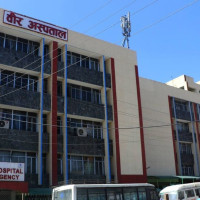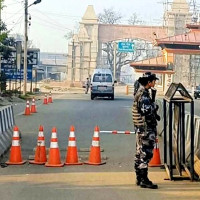- Tuesday, 3 March 2026
Unleash Agro Potential
The government has unveiled an ambitious plan for modernising the agricultural sector. This plan seeks to achieve self-reliance in food production through extensive mechanisation of farming practices and the increased commercialisation of agricultural output. The initiative has been anticipated for a considerable period, as many stakeholders expressed concern over the country's growing dependence on foreign countries for agro products. However, the success of this ambitious plan depends fully on the practical implementation of its various components.
As a landlocked country, agriculture has remained the backbone of Nepal's economy for decades. But still, its potential remains frozen by outdated practices, lack of infrastructure, and insufficient investment. The new strategy breaks these chains by introducing mechanisation, ensuring access to land and credit. The proposed plan offers guaranteed markets through minimum support prices and purchase agreements. This is a giant leap forward, in principle. However, the question remains: how will these proposals be delivered, and will they reach those who need them most?
It is a strategic move to emphasise attracting youth through an ecosystem of finance, insurance, and land access. Youth are choosing foreign employment instead of agricultural practice at home to generate income. To bring them back, farming must be proven as a viable career. The proposed pilot project, which will allow agri-entrepreneurs to access finance and equipment using the project as collateral, is an innovative and encouraging step. Its success lies in strong local mechanisms, timely disbursement, and transparency in the areas where past government efforts have often failed. Also, the integration of the Prime Minister Agriculture Modernisation Project into a National Integrated Programme suggests a recognition that previous initiatives were piecemeal. Integration is required, but it should be inclusive. It is essential to ensure that marginal farmers, smallholders, and women are not left out to make the plan legitimate and effective.
The pledge to restrict chemical use and promote organic pesticides and fertilisers is timely, considering growing worries over the diminishing fertility of soils and biodiversity. Simply encouraging the use of organics, however, will not suffice — there must be firm incentives, capacity building, and access to substitute organics in rural and remote villages. Fertiliser factory construction looks promising, but it has not yet been followed through on like all previous propositions. Will things be different now?
Diversifying laboratory accreditations, promoting indigenous crops, and ensuring food safety through enhanced storage and quarantine facilities are central tenets of a modern agricultural system. But all these will be futile unless corruption is controlled and the subsidies are distributed to targeted groups effectively. As the plan proposes, the ever-relentless problem of goodies being syphoned off by the so-called fake farmers has to be addressed with rigorous verification and digital tracking.
It is equally crucial that support prices and buying commitments are honoured in good time. Bureaucratic delay has transformed such good intentions into a liability rather than a boon for farmers. Nepal does not need another policy that reads well on paper but runs out of steam in execution. The intent is good, and the vision is grand. But without efficient administration, local coordination, and sustained political will, this grand promise risks falling into the category of yet another lost opportunity. The time for promises is gone. What farmers require now is action, delivery and outcome.






-original-thumb.jpg)










